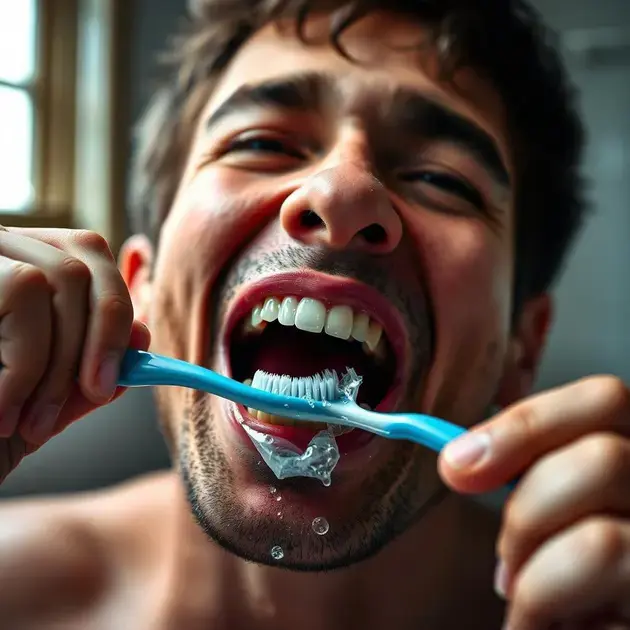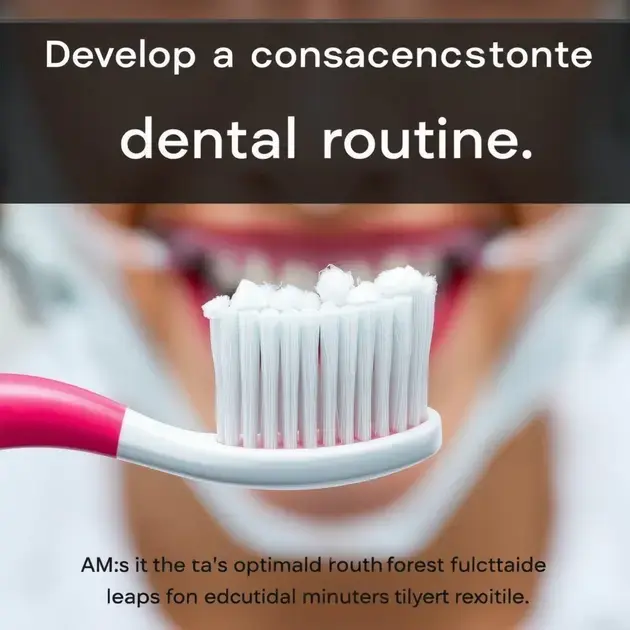Maintaining good oral hygiene is essential for overall health, but many of us find ourselves asking, “How Long Should We Brush Our Teeth for Optimal Oral Health?” The American Dental Association recommends brushing for at least two minutes, twice a day. This duration has been shown to be effective in removing plaque and reducing the risk of gum disease and cavities, ensuring your teeth stay healthy and your smile stays bright.
However, it’s not just about duration but also about technique and consistency. Using the right toothbrush and being thorough, including brushing all surfaces of each tooth, is crucial. The goal is to cover all areas effectively without causing irritation or harm to your gums. Keeping this routine both morning and night can make a significant difference in your oral health over time.

Optimal Brushing Duration for Oral Health
Brushing your teeth is an essential part of maintaining good oral health. The optimal brushing duration recommended by dentists is two minutes. This may seem like a short amount of time, but it is enough to effectively clean all surfaces of your teeth and gums.
To ensure you are brushing for the recommended duration, you can use the Brush DJ app. This app plays two minutes of music from your device or streaming service to help you keep track of time while brushing. It also includes reminders to brush twice a day, making it a useful tool for maintaining good oral hygiene.
In addition to timing your brushing session, it is important to use the correct brushing technique. Hold your toothbrush at a 45-degree angle to your gums and move it back and forth in short, gentle strokes. Make sure to brush all surfaces of your teeth, including the back molars and along the gumline.
Another helpful tip is to divide your mouth into quadrants and spend 30 seconds brushing each quadrant. This ensures that you are giving equal attention to all areas of your mouth and helps prevent you from rushing through your brushing routine.
Remember, the key to optimal oral health is consistency. Brushing your teeth for two minutes, twice a day, is a simple yet effective way to keep your smile healthy and bright.
Effective Brushing Techniques for a Healthy Smile
Brushing your teeth correctly is crucial for maintaining a healthy smile. One effective brushing technique is the modified Bass method, which involves holding your toothbrush at a 45-degree angle to your gums and making short, gentle circular motions to clean along the gumline.
When brushing, be sure to use a soft-bristled toothbrush and fluoride toothpaste. The soft bristles are gentle on your enamel and gums, while fluoride helps strengthen your teeth and prevent cavities.
To ensure you are brushing effectively, you can try using the Oral-B app. This app provides personalized brushing routines based on your specific oral care needs. It also offers real-time feedback on your brushing technique to help you improve and maintain a healthy smile.
It is also important to replace your toothbrush every three to four months, or sooner if the bristles are frayed. A worn-out toothbrush is less effective at removing plaque and bacteria from your teeth, so regular replacement is key to optimal oral hygiene.
Remember to brush your tongue as well, as bacteria can accumulate on the surface and contribute to bad breath. By following these effective brushing techniques and incorporating them into your daily routine, you can achieve a healthy and radiant smile.
Consistency is Key: Developing a Brushing Routine
Developing a consistent brushing routine is essential for maintaining good oral health. Start by brushing your teeth at the same times each day, such as after breakfast and before bed. This will help establish a habit and ensure you are not skipping your oral care routine.
You can track your brushing habits and set reminders using the Colgate Connect app. This app allows you to log your brushing sessions, receive personalized oral care tips, and set goals to improve your brushing routine. By monitoring your progress, you can stay motivated to maintain a consistent and thorough brushing routine.
Another tip for developing a brushing routine is to floss daily. Flossing helps remove plaque and food particles from between your teeth, where your toothbrush may not reach. By incorporating flossing into your daily oral care routine, you can further improve the health of your gums and prevent cavities.
When brushing, pay attention to your technique and be gentle yet thorough. Avoid brushing too hard, as this can damage your enamel and irritate your gums. Instead, use light pressure and take the time to clean all surfaces of your teeth for a comprehensive clean.
Consistency in your brushing routine is key to maintaining optimal oral health. By following these tips and making oral care a priority, you can enjoy a healthy and confident smile for years to come.

How to Choose the Best Toothbrush for Your Oral Health
Choosing the right toothbrush is crucial for maintaining good oral health. With so many options available on the market, it can be overwhelming to decide which toothbrush is best for you. Here are some steps to help you choose the best toothbrush:
1. Consider the Bristles
When selecting a toothbrush, consider the bristles. Soft or extra-soft bristles are recommended by dentists as they are gentle on the gums and teeth. Avoid hard bristles that can cause gum irritation and enamel damage.
2. Opt for the Right Size
The size of the toothbrush head is important for effective cleaning. Choose a toothbrush with a head that comfortably fits in your mouth and can reach all areas, including the back molars.
3. Choose the Handle Wisely
Choose a toothbrush with a handle that is comfortable to hold and allows for easy maneuverability during brushing. Some toothbrushes come with ergonomic handles or grips for better control.
4. Manual vs. Electric
Consider whether you prefer a manual toothbrush or an electric one. Electric toothbrushes can be more effective at removing plaque and reducing gingivitis, but a manual toothbrush, when used correctly, can also provide thorough cleaning.
5. Replace Regularly
Remember to replace your toothbrush every 3 to 4 months or sooner if the bristles are frayed. A worn-out toothbrush is less effective at cleaning your teeth and can harbor bacteria.
The Importance of Regular Dental Check-ups for Preventive Care
Regular dental check-ups are essential for maintaining good oral health and preventing dental problems. By visiting your dentist regularly, you can detect and address any issues early on, saving you potential pain and expenses in the long run. Here are some reasons why regular dental check-ups are crucial:
1. Early Detection of Dental Issues
During a dental check-up, your dentist will examine your mouth for any signs of cavities, gum disease, or other oral health problems. Early detection allows for prompt treatment, preventing the issue from worsening.
2. Professional Cleaning
Dental check-ups often include professional cleaning to remove plaque and tartar buildup that cannot be effectively removed at home. This helps prevent gum disease and tooth decay.
3. Oral Cancer Screening
Regular dental check-ups may include an oral cancer screening. Early detection of oral cancer can significantly improve treatment outcomes, making regular check-ups potentially life-saving.
4. Customized Oral Health Advice
Your dentist can provide personalized advice on how to improve your oral hygiene practices based on the specific needs of your teeth and gums. This guidance can help prevent future dental issues.
5. Overall Health Assessment
Oral health is closely linked to overall health. During a dental check-up, your dentist may identify signs of systemic diseases such as diabetes or heart disease, allowing for early intervention and management.
Conclusion
Choosing the right toothbrush is essential for maintaining optimal oral health. By considering factors such as bristle type, size, handle design, and manual vs. electric options, you can ensure effective cleaning and protection for your teeth and gums. Remember to replace your toothbrush regularly to avoid bacterial buildup and ensure efficiency in cleaning.
Regular dental check-ups play a crucial role in preventive care and overall well-being. These visits allow for early detection of dental issues, professional cleaning to prevent gum disease and decay, and oral cancer screenings for potential life-saving outcomes. Your dentist can provide personalized advice to enhance your oral hygiene practices, tailored to your specific needs.
Moreover, dental check-ups offer a comprehensive assessment of your oral and overall health, identifying potential systemic diseases early on for timely intervention and management. By prioritizing regular dental visits and selecting the right toothbrush, you can significantly improve your oral health and overall quality of life. Invest in your dental care today for a healthier tomorrow!
